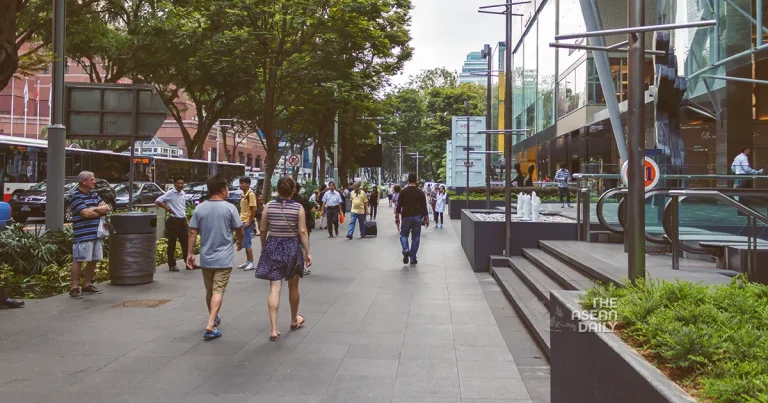11-4-2024 (SINGAPORE) In the fast-paced metropolis of Singapore, where harried souls hurry from one commitment to the next, an alarming trend appears to be emerging – a perceived lack of graciousness amongst our citizenry. A recent poll by local survey platform Answers.sg has revealed that more than half of respondents view Singaporeans as rude, prompting reflection on whether kindness is becoming a lost art in our society.
The Answers.sg poll, which garnered 1,635 responses, found that 53% of participants agreed with the statement that Singaporeans are rude. A sizeable 26% strongly endorsed this view, painting a rather unflattering picture of our national character. In contrast, only 20% disagreed that Singaporeans lack courtesy, with a mere 9% feeling strongly about defending our reputation for graciousness.
This sentiment is not without basis, as numerous incidents have made headlines, highlighting instances of discourteous behaviour. From confrontations with mosque-goers over perceived noise to the flagrant disregard for reserved seating on public transport, examples of inconsiderate conduct seem to be mounting.
Dr. Tan Ern Ser, an Associate Professor at the National University of Singapore’s Department of Sociology, acknowledges that while rudeness is not unique to Singaporeans, it should not be justified. “The causes of rudeness shouldn’t be taken as justification for rudeness,” he asserts, suggesting that those on the receiving end may be more inclined to generalise such behaviour to the entire population.
One potential contributor to this perceived lack of courtesy could be the intense pressures of our fast-paced society. In 2022, Singapore ranked as the fourth most overworked nation globally, with the majority of workers clocking more than 44 hours per week. The exhaustion and stress of such demanding schedules may manifest in curt interactions and a lack of patience.
However, the high population density of our city-state could also play a role. As Dr. Elle Boag, a social psychologist at Birmingham City University, explains, crowded urban environments can trigger a sense of threat, prompting defensive and insular behaviours as a protective mechanism.
Yet, amidst these challenges, glimmers of hope remain. The Singapore Kindness Movement’s 2022 survey found that small acts of graciousness, such as consideration for the elderly and vulnerable, have continued to grow in frequency. Additionally, heartwarming tales of kindness, like a schoolboy sheltering alighting passengers with an umbrella or a resident leaving free snacks during Ramadan, remind us of the inherent goodness within our community.
As Singapore grapples with the perception of declining graciousness, Dr. Tan offers a poignant reminder: “Rudeness begets rudeness. Check our own behaviour… we may often use others’ rudeness to justify our own rudeness.”
Perhaps it is time for us to collectively pause and reflect on the pivotal role that courtesy plays in fostering a harmonious society. By consciously extending small gestures of kindness – holding the door open, wishing well to our cleaners, or simply offering a warm smile – we can collectively contribute to a more gracious Singapore, one interaction at a time.




